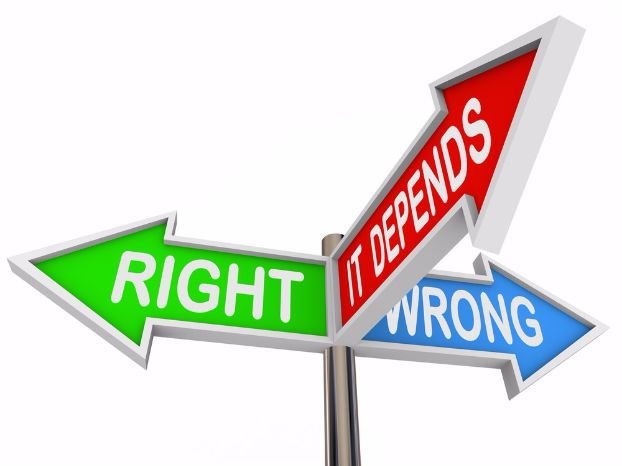Harmony Chen (9) | STAFF REPORTER
Morality consists of a system of beliefs that guide individuals to determine whether an action is right or wrong. Over time, ethical theories have been created in endeavours to provide clearly defined accounts of a human’s moral obligations.
Deontology states that the rightness or wrongness of an action is determined by whether or not the action itself is morally correct, following fixed, universal principles and guidelines. Thus, there is no focus on the results of the action.
On the other hand, consequentialism states that the morality of actions is dependent on its outcomes—if the action brings positive results, it is morally right, whereas if detrimental consequences arise, it is morally wrong.
Regardless of the contrasting approaches to morality, consequentialists and deontologists often find many similarities in their beliefs, such as the interdiction of stealing, cheating, and lying. What sparks the difference, however, is the reason why each school of thought would deem the action immoral.
For instance, a deontologist may say that stealing is wrong because it violates property rights, which humans have the obligation to follow. A consequentialist would argue that it is immoral because it causes people to lose their property and feel anxious about their security.
Both schools of ethics can be used to justify the morality of one’s actions. However, which of the two should be followed?
Consequentialism tends to be inclined towards the welfare of the greatest number of humans possible, as the outcome determines moral righteousness—a greater result would make the action more morally right.
However, this utilitarian approach is flawed, as it requires determining the morality of an action based on its outcomes when it is impossible to fully predict the results beforehand.
Furthermore, consequentialism often prevents people from helping others or taking risks, as they fear the potential consequences. For instance, a qualified individual may choose not to perform first aid on someone that is suffering from a major wound in fear that they may worsen the situation. Although the individual would not be held liable, this would result in the loss of a potential recovery.
Contrastingly, deontology creates moral absolutes that guide one’s actions without subjectivity or uncertainty. Although this approach is beneficial in many circumstances, such as trying to help a person in need, the rigid structure may produce extremely harmful results from the lack of need to weigh the costs and benefits of an action.
For instance, in Nestle’s infamous baby milk powder scandal, infant formula was sent to mothers in developing countries. Though the action itself may seem virtuous, it resulted in 66,000 infant deaths and many more illnesses in low and middle income countries in 1981.
This whopping number was a result of the lack of clean water to create the baby milk. Additionally, mothers became reliant on formula after they stopped producing breast milk, yet they did not have the means to continuously purchase more, causing malnutrition.
Therefore, the misuse of deontology and consequentialism can both be morally wrong. It is up to the thinker to make logical decisions regarding which school of ethics to follow in case-specific scenarios, as these decisions may act as a make or break the growth of individuals and society as a whole.



